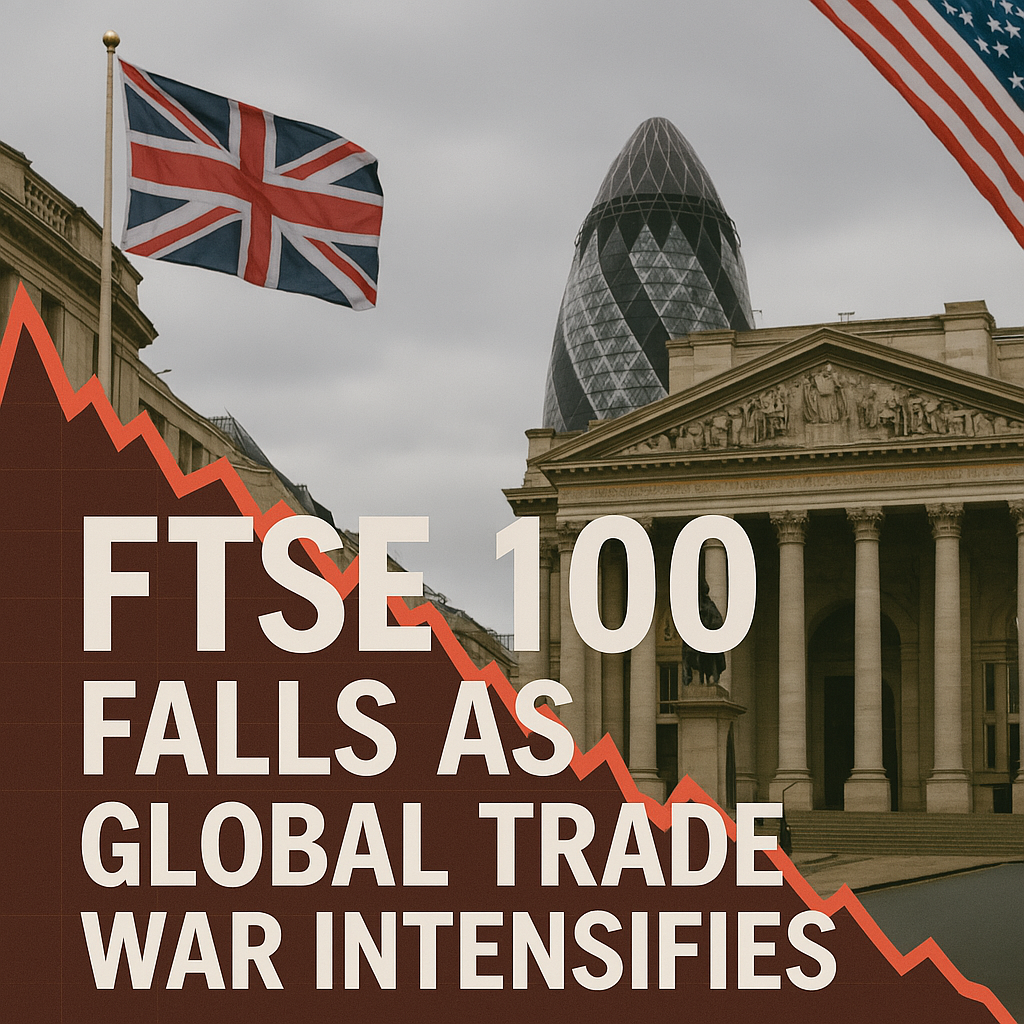Market Ramifications
The FTSE 100 dived yesterday after a 34% Chinese retaliatory tariff on the U.S. The UK blue-chip index dived as much as 4% by midday on Friday. Lenders, miners, and industrials were among the worst performers, following a pattern from Thursday. NatWest and Barclays shares both fell more than 8% by midday, while Glencore was leading the FTSE 100 down, falling close to 10%. Rolls-Royce and Melrose both fell over 8%.
The FTSE 100’s huge fall yesterday reflects the market’s heightened sensitivity to global trade tensions. China’s 34% tit-for-tat tariff on the U.S. shook the financial markets, with the UK blue-chip index falling as much as 4% at midday. Sensitive sectors such as lenders, miners, and industrials suffered most, with NatWest and Barclays shares falling over 8%, and Glencore dragging the FTSE 100 down by nearly 10%.
Sector Performance
The FTSE’s top faller on Thursday, Standard Chartered, fell over 4%. British American Tobacco and SSE were the top risers early in the session, each up over 2%. Associated British Foods, Primark’s owner, was also up over 2%. Susannah Streeter, Hargreaves Lansdown’s money and markets head, stated, “Another spasm of fear has swept through markets, as China’s threat to retaliate has materialized. The big fear is that this is the warning sign of a sudden escalation of the tariff war, which will have huge implications for the global economy. The jolt to shares has come in even steeper losses with European indices falling further into the red.“
While most sectors plummeted, however, British American Tobacco and SSE managed to rise by around 2%, and Associated British Foods, the retailer of Primark, was over 2% up. Susannah Streeter’s comments point out the concern on the market for a shocking escalation of the tariff war that could have huge effects on the world economy. The FTSE 100’s continued vulnerability to global trade trends is evident, with European indices also falling heavily.
Global Market Reaction
Russ Mould, AJ Bell investment director, stated, “As markets suffered their worst week in five years, investors slept under their duvet on Friday hoping the pain would go away. Unfortunately, persistent selling over the weekend saw markets fall across Asia and Europe and futures prices indicating that the U.S. will follow suit later when trading resumes.” Mould added that “many sectors would be impacted by tariffs, but the complexity of the issue made it difficult to know where to start to make sense of the situation.“
On Thursday, the FTSE 100 dropped 133 points, 1.6% to 8,474.74. Trump imposed a 10% base tariff on all countries trading with America, the rate higher on “worst offenders“. The UK faced a 10% tariff on imports, the European Union a 20% tariff.
In Europe, stocks were hammered again. Germany’s DAX was lower 3.8%, France’s CAC 40 decreased by 3.2%, while the Netherlands’ AEX was lower 2.5% in the wake of China’s tariff declaration. Tariff headache ignited some of Wall Street’s most significant downturns since the pandemic year of 2020 on Thursday with the Nasdaq Exchange experiencing its worst. Giant technology firms Apple and Nvidia shed 9% and 8% respectively, and the S&P 500 slid close to 5%, and the Dow Jones sank by 4%.
Derren Nathan, Hargreaves Lansdown’s head of equity research, said, “Even after months of sabre-rattling from Donald Trump, markets did not appear to anticipate the scale and intensity of tariffs announced by the White House. The FTSE 100 is set to open lower once again, after the worst day for US stocks in five years. The tech-weighted Nasdaq was worst hit, down nearly 6%, but there were heavy falls among the banks, the industrials, and the oil sector. The traditional defensive havens gave some protection with rises in consumer staples and utilities.”
The global market reaction was extreme and swift. European indexes like Germany’s DAX, France’s CAC 40, and the Netherlands’ AEX all fell sharply, reflecting the interconnectedness of international financial markets. Wall Street experienced some of its biggest losses since 2020, with the Nasdaq Exchange, home to technology titans Apple and Nvidia, falling heavily. Derren Nathan’s comments capture the market’s failure to prepare for the extent of tariffs, with defensive sectors like consumer staples and utilities offering some consolation.havens gave some protection with rises in consumer staples and utilities.”
The FTSE 100 performance yesterday, and indeed overall global market response, captures the grave impact trade tensions have had on financial stability. The strategic use of tariffs by the U.S. and China has created a precarious situation, with investors seeking safer havens and companies bracing for the economic impact. The UK’s interlinkage with global trade means it will not be immune to these harsh economic winds, even though it appears to have been dealt a comparatively more benevolent hand in this round of tariffs.


